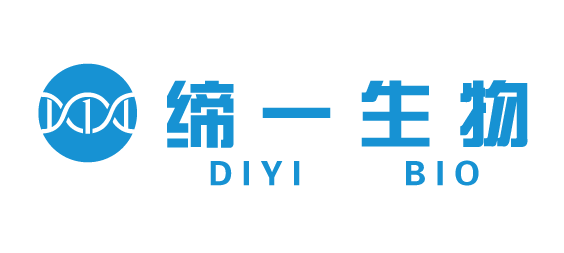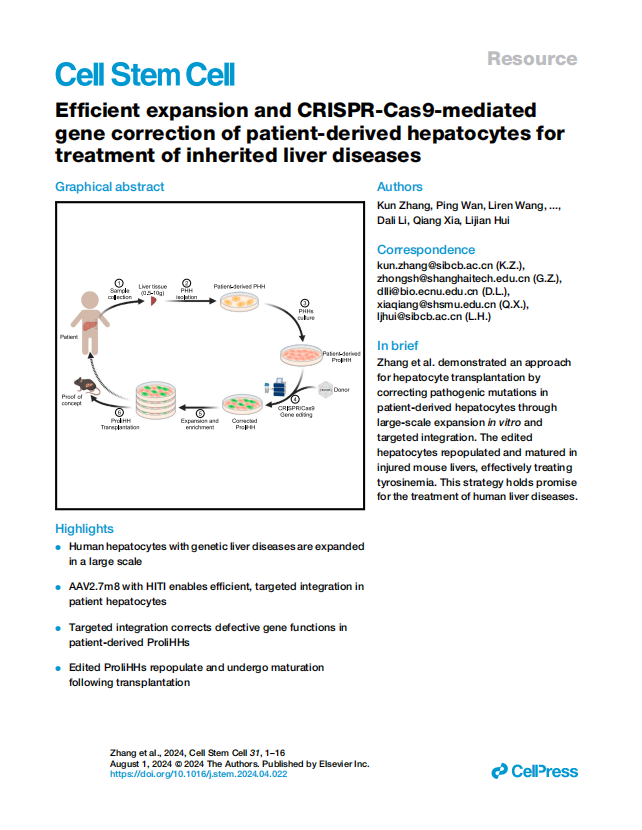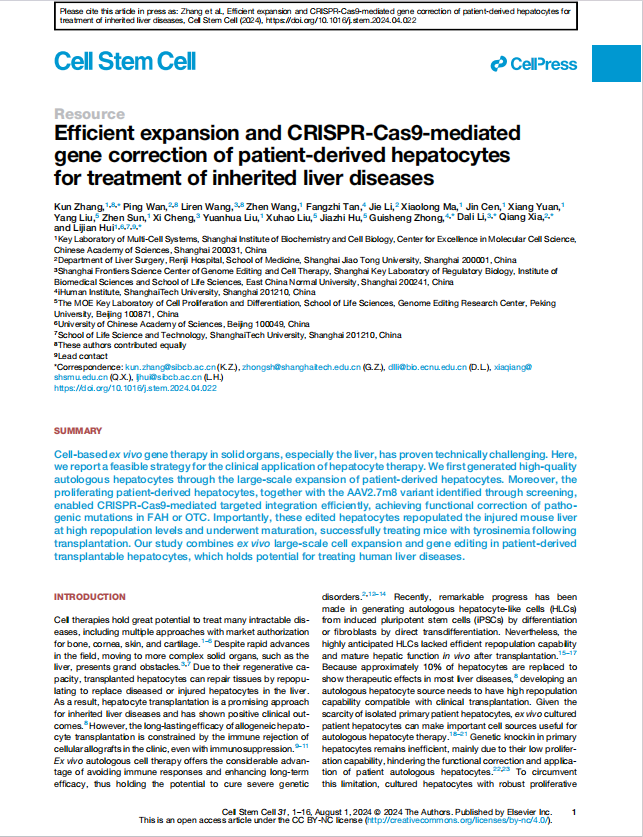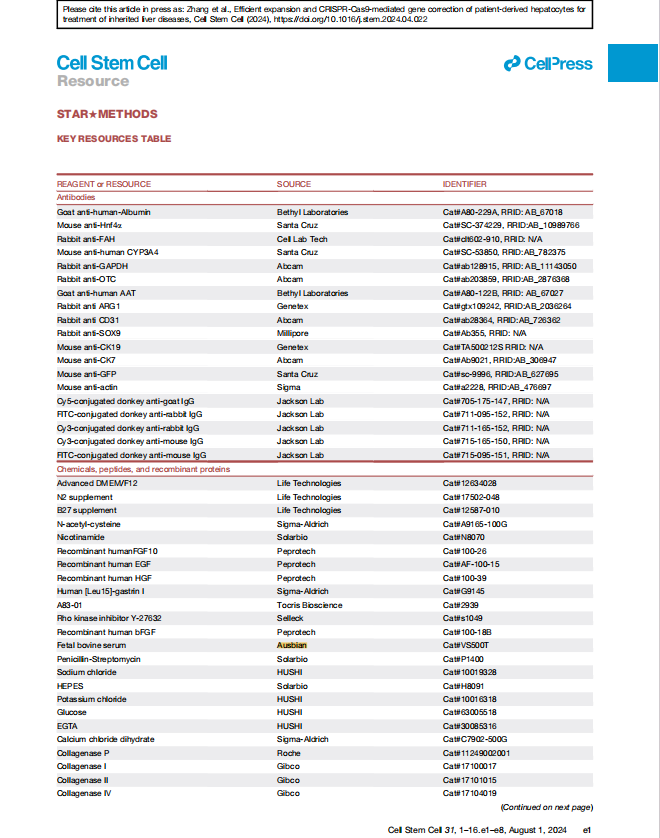患者源性肝細(xì)胞的高效擴增和Crispr-Cas9介導(dǎo)的基因校正治療遺傳性肝病 二維碼
發(fā)表時間:2024-08-22 11:11 2024年5月,1中國科學(xué)院上海生物化學(xué)與細(xì)胞生物學(xué)研究所多細(xì)胞系統(tǒng)重點實驗室,中國科學(xué)院分子細(xì)胞科學(xué)**研究中心,2上海交通大學(xué)醫(yī)學(xué)院仁濟醫(yī)院肝臟外科,華東師范大學(xué)生物醫(yī)學(xué)科學(xué)研究所,生命科學(xué)學(xué)院,3上海市調(diào)控生物學(xué)重點實驗室,上海市基因組編輯與細(xì)胞治療前沿科學(xué)中心,華東師范大學(xué),4 上海工業(yè)大學(xué)人類研究所,5北京大學(xué)生命科學(xué)學(xué)院,細(xì)胞增殖與分化教育部重點實驗室,北京大學(xué)基因組編輯研究中心;6中國科學(xué)院大學(xué),7上海工業(yè)大學(xué)生命科學(xué)與技術(shù)學(xué)院(1Key Laboratory of Multi-Cell Systems, Shanghai Institute of Biochemistry and Cell Biology, Center for Excellence in Molecular Cell Science,Chinese Academy of Sciences, 2Department of Liver Surgery, Renji Hospital, School of Medicine, Shanghai Jiao Tong University, 3Shanghai Frontiers Science Center of Genome Editing and Cell Therapy, Shanghai Key Laboratory of Regulatory Biology, Institute ofBiomedical Sciences and School of Life Sciences, East China Normal University, 4iHuman Institute, ShanghaiTech University, 5The MOE Key Laboratory of Cell Proliferation and Differentiation, School of Life Sciences, Genome Editing Research Center, Peking University, 6University of Chinese Academy of Sciences, 7School of Life Science and Technology, ShanghaiTech University,)Qiang Xia and Lijian Hui研究團隊在《Cell Stem Cell》上發(fā)表論文: “Efficient expansion and CRISPR-Cas9-mediated gene correction of patient-derived hepatocytes for treatment of inherited liver diseases” “患者源性肝細(xì)胞的高效擴增和Crispr-Cas9介導(dǎo)的基因校正治療遺傳性肝病” Abstract: Cell-based ex vivo gene therapy in solid organs, especially the liver, has proven technically challenging. Here, we report a feasible strategy for the clinical application of hepatocyte therapy. We first generated high-quality autologous hepatocytes through the large-scale expansion of patient-derived hepatocytes. Moreover, the proliferating patient-derived hepatocytes, together with the AAV2.7m8 variant identified through screening, enabled CRISPR-Cas9-mediated targeted integration efficiently, achieving functional correction of pathogenic mutations in FAH or OTC. Importantly, these edited hepatocytes repopulated the injured mouse liver at high repopulation levels and underwent maturation, successfully treating mice with tyrosinemia following transplantation. Our study combines ex vivo large-scale cell expansion and gene editing in patient-derived transplantable hepatocytes, which holds potential for treating human liver diseases. 摘要: 在實體器官,特別是肝臟中進行基于細(xì)胞的體外基因治療,在技術(shù)上具有挑戰(zhàn)性。在這里,我們報告了肝細(xì)胞治療臨床應(yīng)用的可行策略。我們首先通過大規(guī)模擴增患者源性肝細(xì)胞獲得了高質(zhì)量的自體肝細(xì)胞。此外,增殖的患者源性肝細(xì)胞與通過篩選鑒定的AAV2.7m8變體一起,有效地實現(xiàn)了Crispr-Cas9介導(dǎo)的靶向整合,實現(xiàn)了FAH或OTC致病性突變的功能糾正。重要的是,這些經(jīng)過編輯的肝細(xì)胞以高水平重新填充受傷小鼠的肝臟并經(jīng)歷成熟,成功地治療了移植后酪氨酸血癥小鼠。我們的研究結(jié)合了患者來源的可移植肝細(xì)胞的體外大規(guī)模細(xì)胞擴增和基因編輯,具有治療人類肝臟疾病的潛力。 該論文中,L-Wnt3a細(xì)胞系的體外培養(yǎng)是使用Ausbian特級胎牛血清完成的。欲了解或購買Ausbian特級胎牛血清可以聯(lián)系北京締一生物400-166-8600.
|
|






